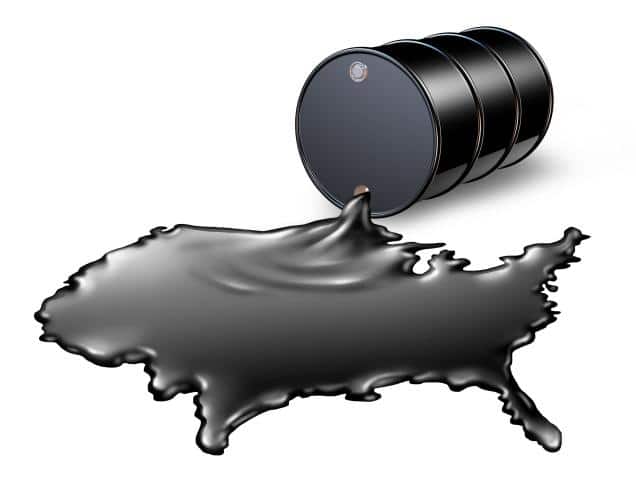It was a tumultuous week in the world of hydraulic fracturing (“fracking”) for shale oil and gas, with a few of the biggest companies in the U.S. announcing temporary shutdowns at their drilling operations in various areas until oil prices rise again from the ashes.
Among them: Chesapeake Energy, Continental Resources and Whiting Petroleum. Chesapeake formerly sat as the second most prolific fracker in the U.S. behind ExxonMobil, while Continental has been hailed by many as the “King of the Bakken” shale basin located primarily in North Dakota.
Halliburton too, the drilling services goliath and namesake of the “Halliburton Loophole” exempting the industry from U.S. Environmental Protection Agency (EPA) enforcement of the Safe Drinking Water Act as it applies to fracking operations, has recently announced it will cut 5,000 drilling jobs globally (8 percent of its workforce).
“Continental Resources Inc., the shale oil pioneer controlled by billionaire wildcatter Harold Hamm, halted all fracking in the Bakken shale formation in the U.S. Williston Basin after posting its first annual loss since the company’s public debut in 2007,” wrote Bloomberg. “Continental said it has no fracking crews currently working in the Bakken. The company continues to drill there, focusing on areas with the highest returns, but will leave most wells unfinished this year.”
Chesapeake’s immediate future is just as bleak, if not more so, and it will halt drilling in the Marcellus Shale, Utica Shale, Eagle Ford Shale and elsewhere. The company sits as the top-producing driller in both the Utica and the Marcellus.
Whiting, the most prolific shale oil producer in the Bakken, will halt all of its fracking in the near-future. The company, 83 percent of whose produced oil comes from fracking the Bakken, will simultaneously slash its spending budget by 80 percent.
North Dakota and Oklahoma, with economies largely dependent on revenues generated from oil and gas drilling, have both projected $1 billion budget shortfalls for the forthcoming budget cycle. Things are even worse in Alaska, with a pending $3.5 billion budget shortfall.
And if the sordid news for the frackers were not bleak enough on the bottoming out of oil prices, David Hughes — a former oil industry geoscientist and current fellow with the Post Carbon Institute — recently delivered sworn testimony to the North Carolina Utilities Commission that shale gas production will peak in 2017 nationwide and then begin a rapid productivity decline.
But low oil prices, while temporarily shutting down drilling projects, do not automatically equate to an ecological victory. Naomi Klein, author of several books including “This Changes Everything: Capitalism vs. The Climate,” addressed this about a year ago in an interview published by Grist.
“It is not preordained that low oil prices will either hurt or help the climate movement,” said Klein. “If we do nothing, then it’s more likely that low oil prices will work against sensible climate action, just for simple economic reasons. When oil is cheap, people feel able to buy more of it. Already we’re hearing these stories, like the comeback of the SUV.”
Klein said that’s why she believes advocates must “kick oil while it’s down” and not remain complacent.
“There are various reasons why, if we get the right set of incentives in place — both political and economic — it can be a really, really good time to get off fossil fuels and push very aggressively toward a decentralized, renewables-based economy,” Klein remarked.
Subscribe to our newsletter
Stay up to date with DeSmog news and alerts







